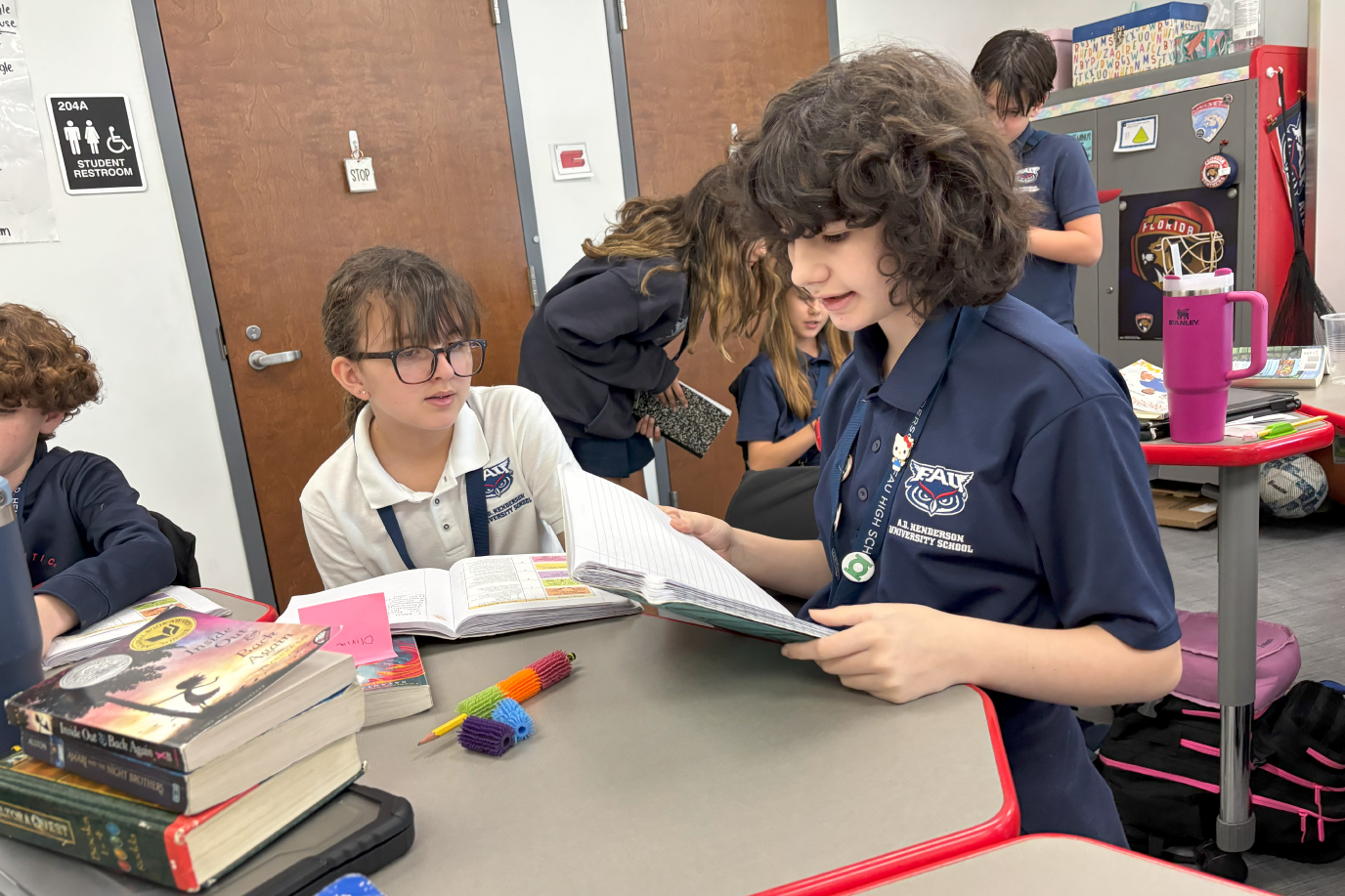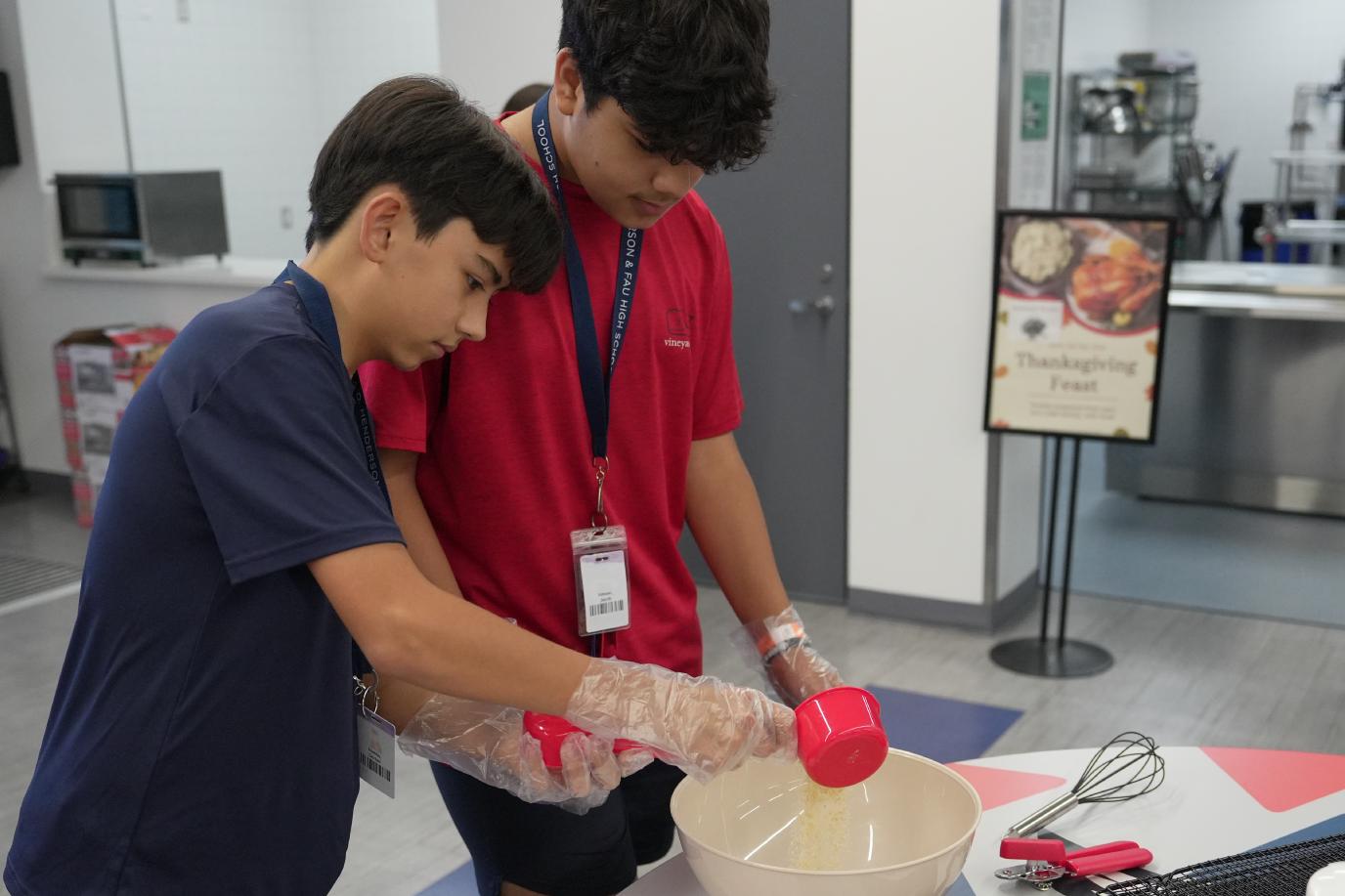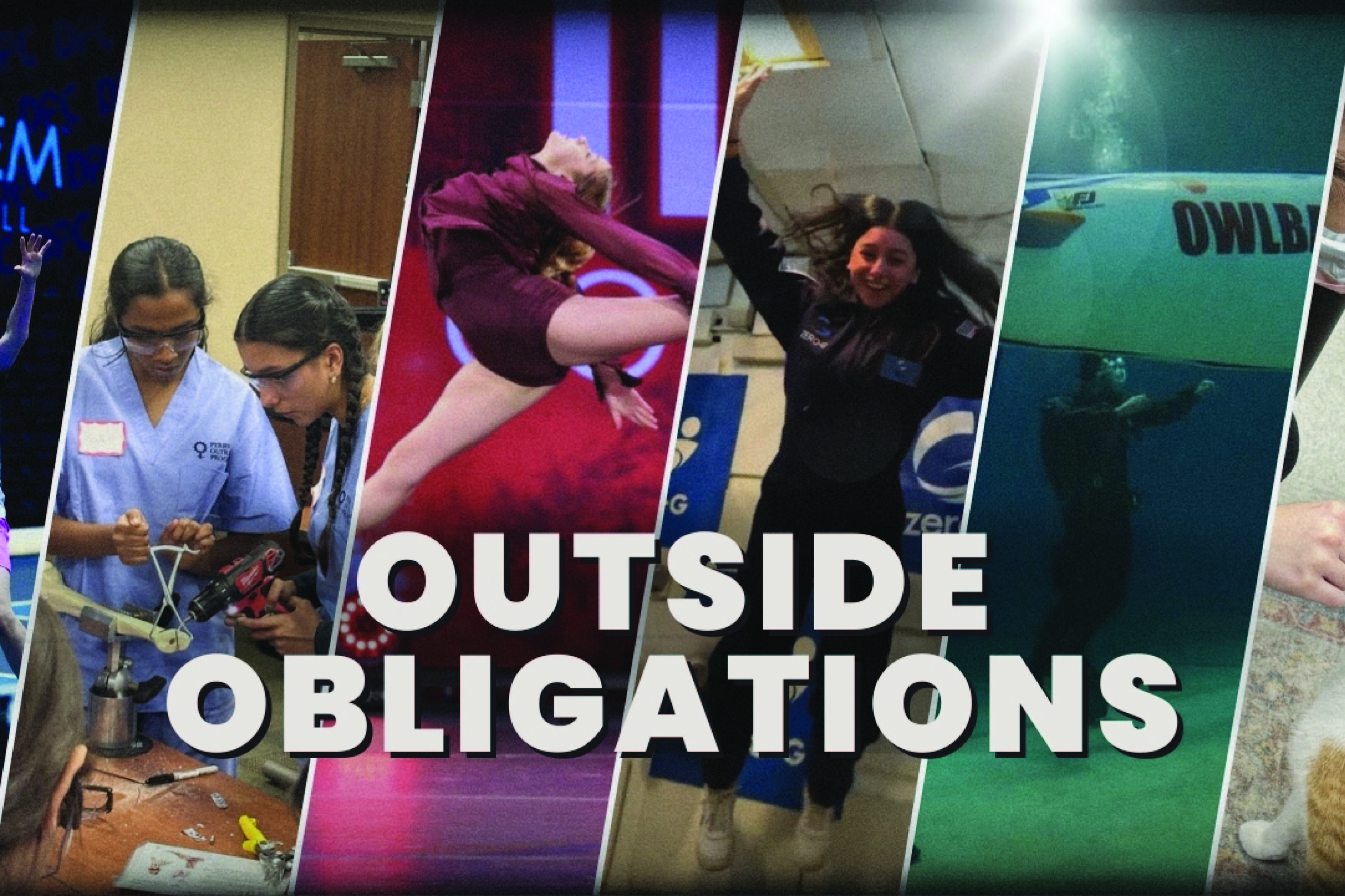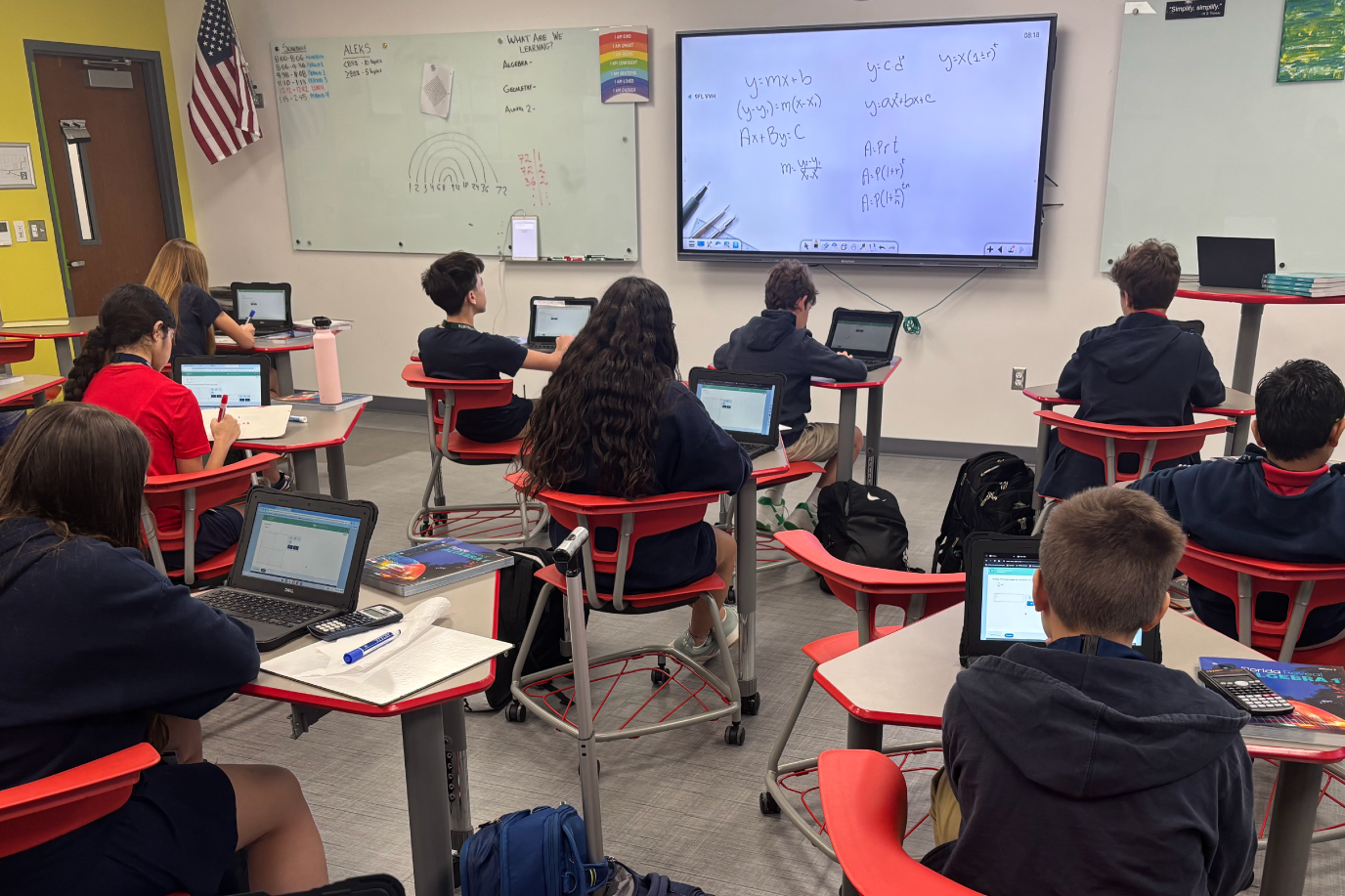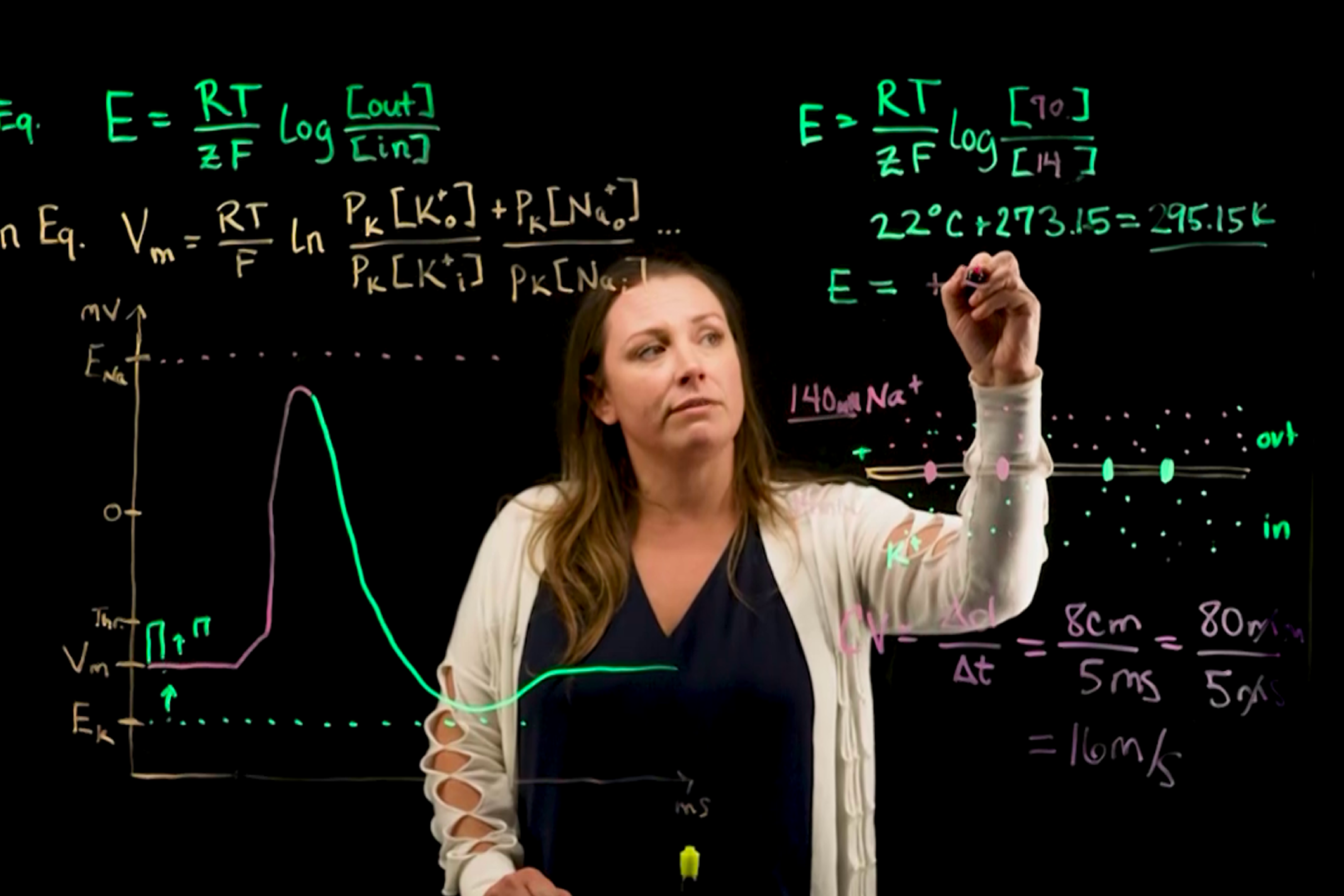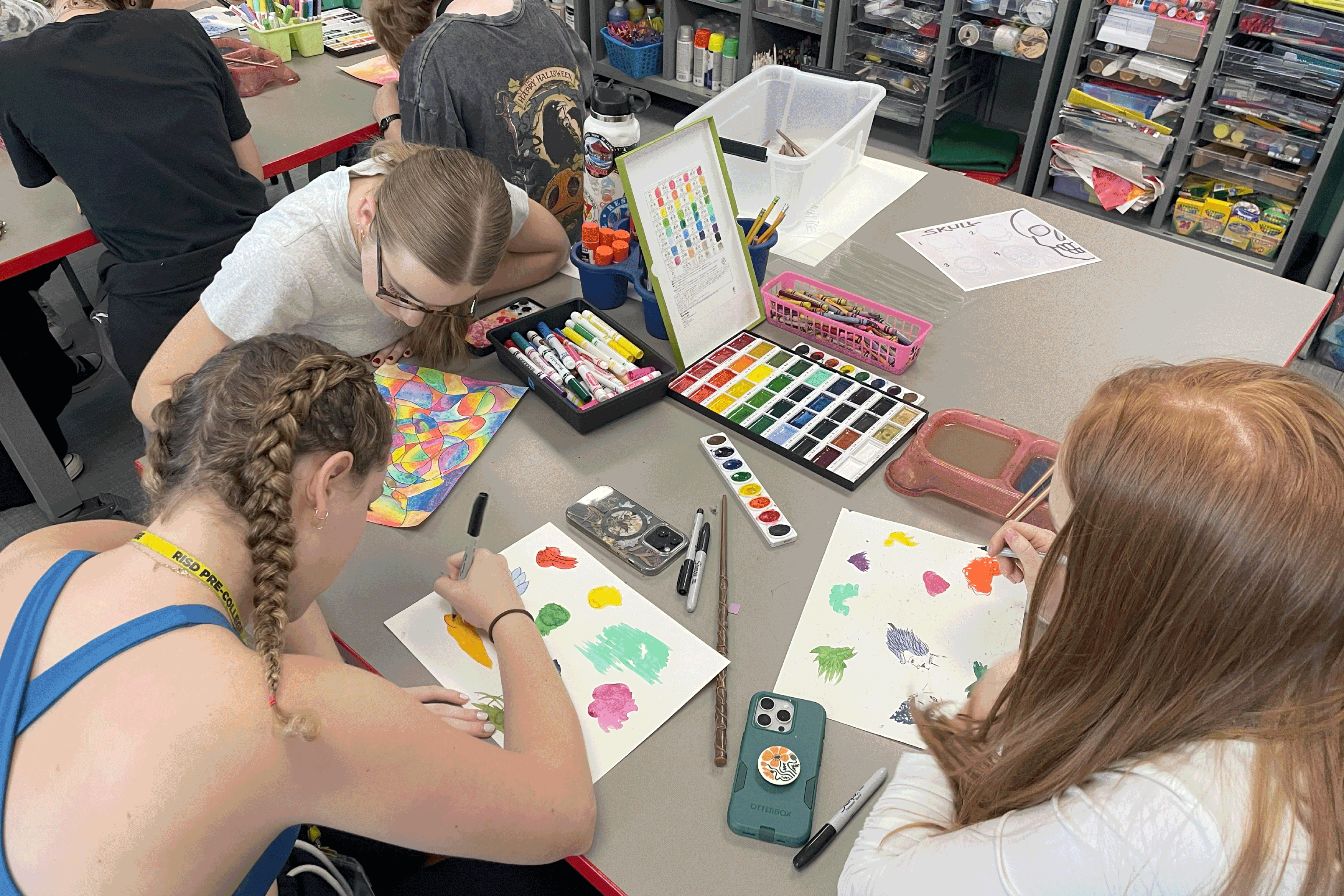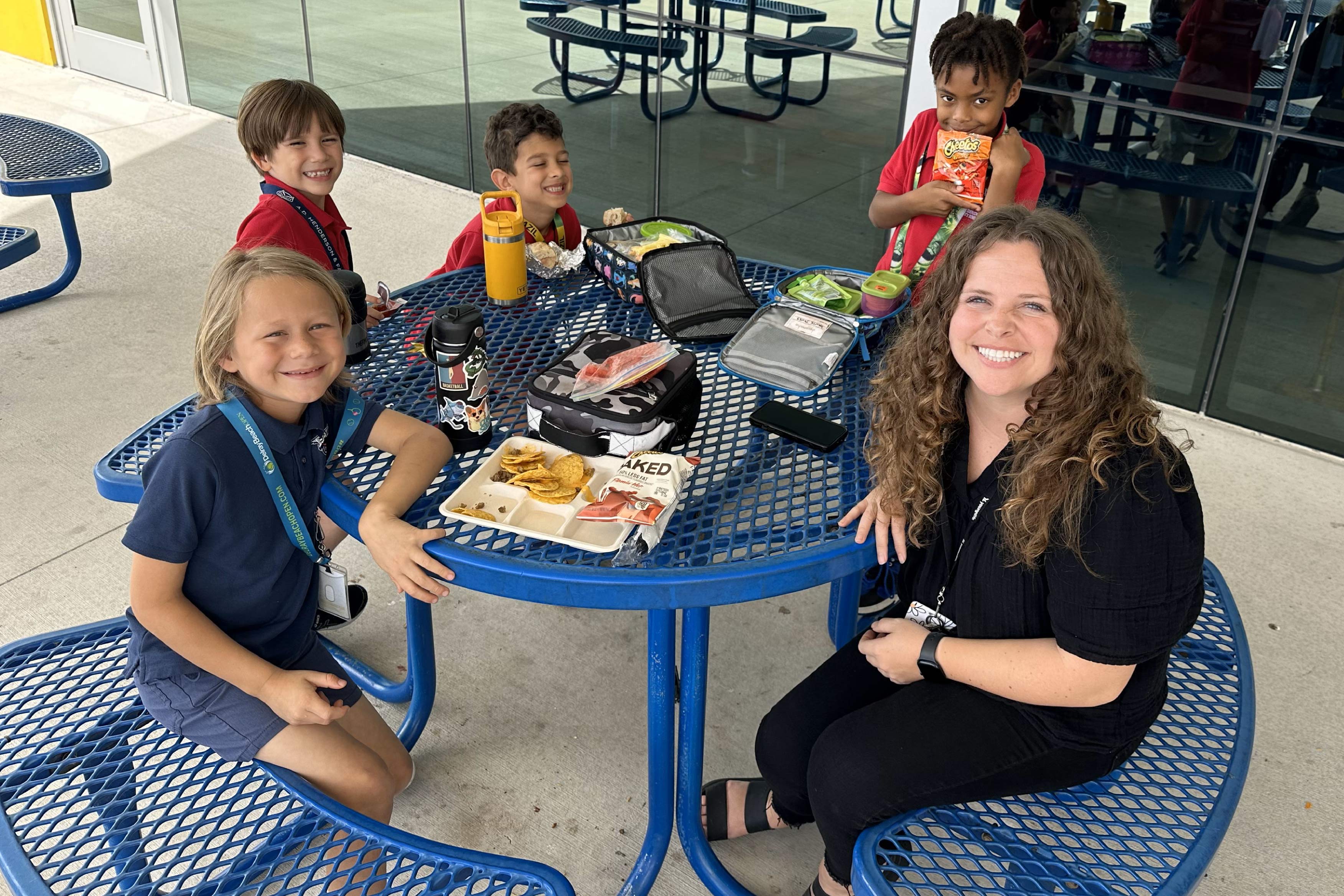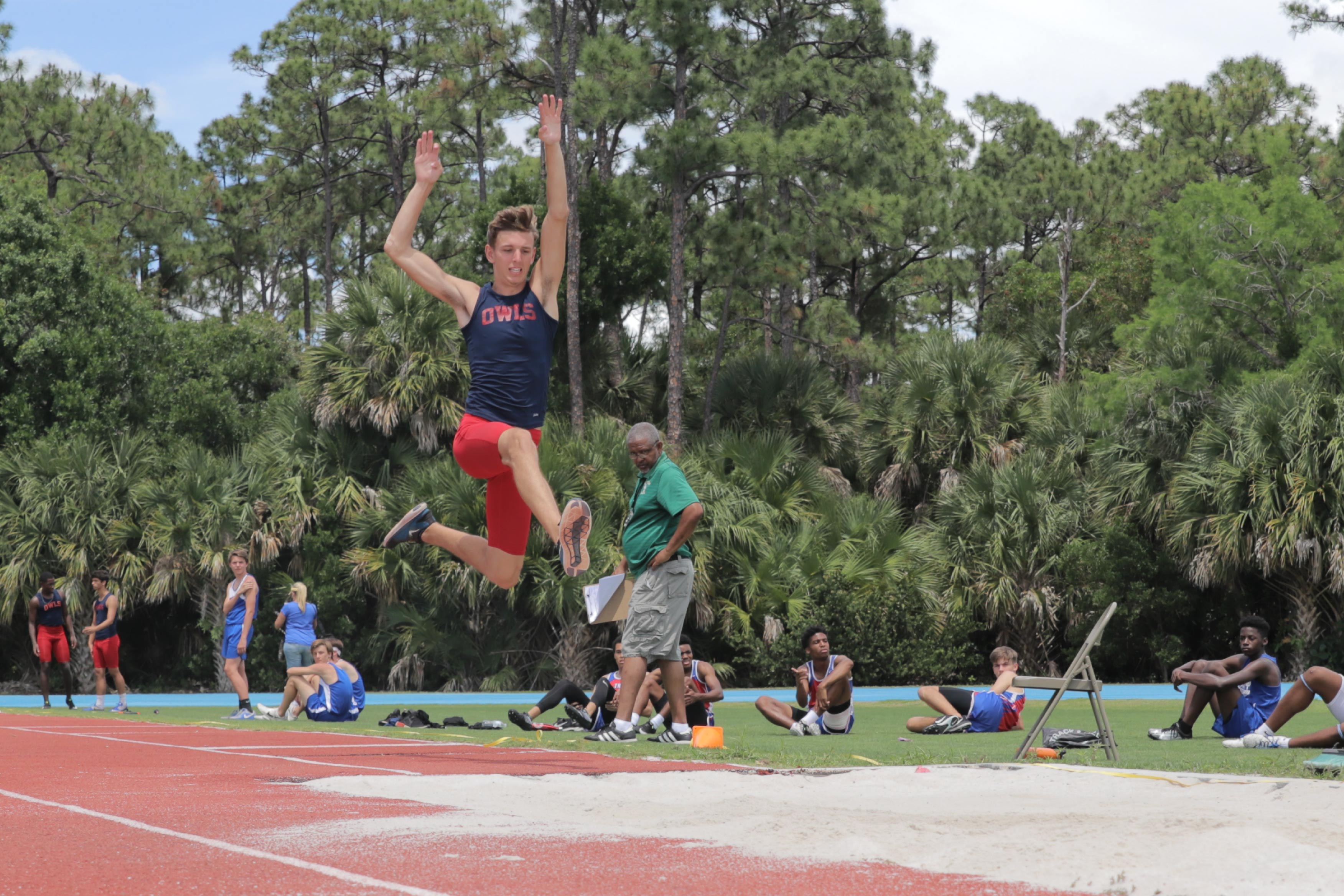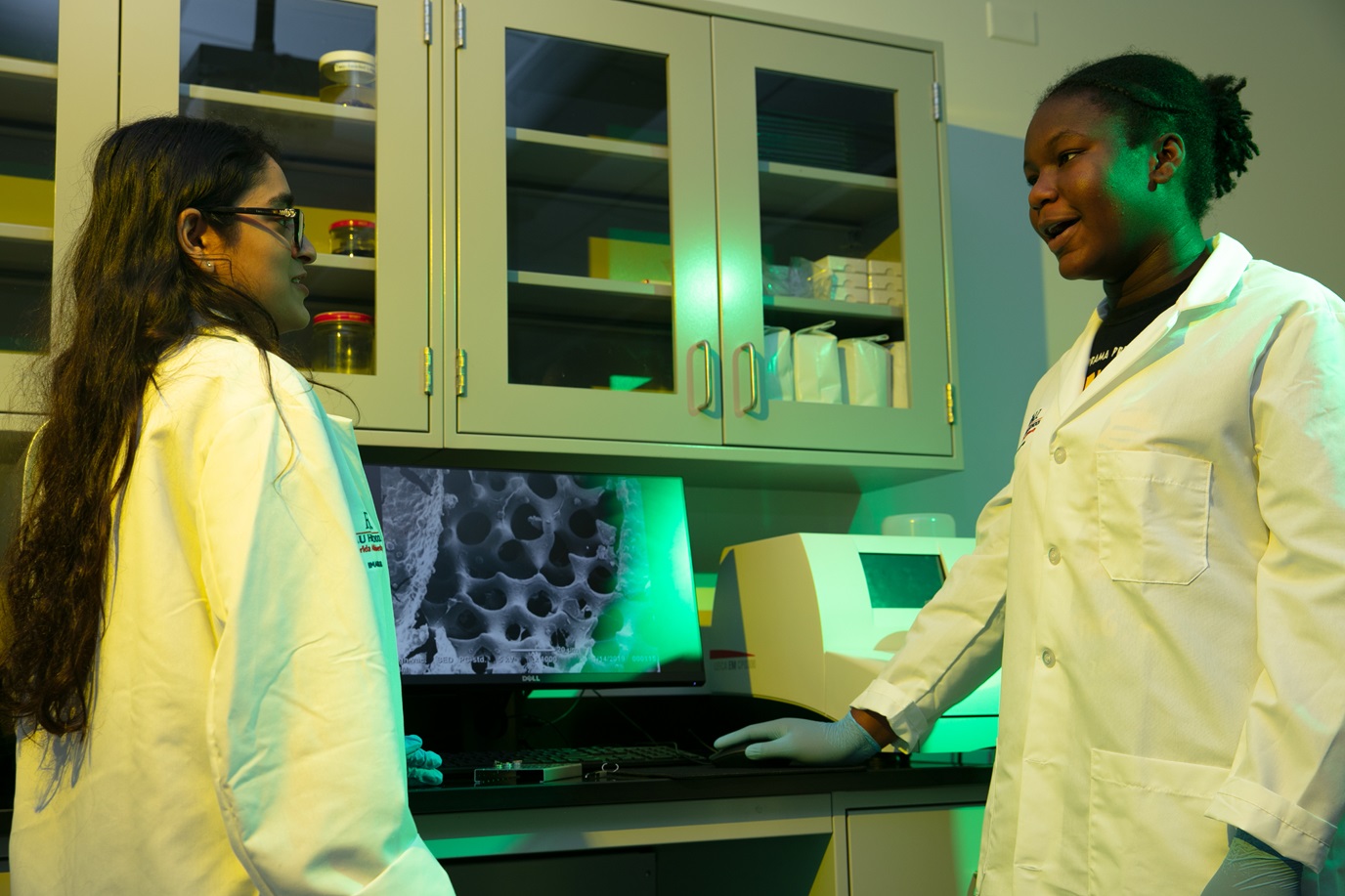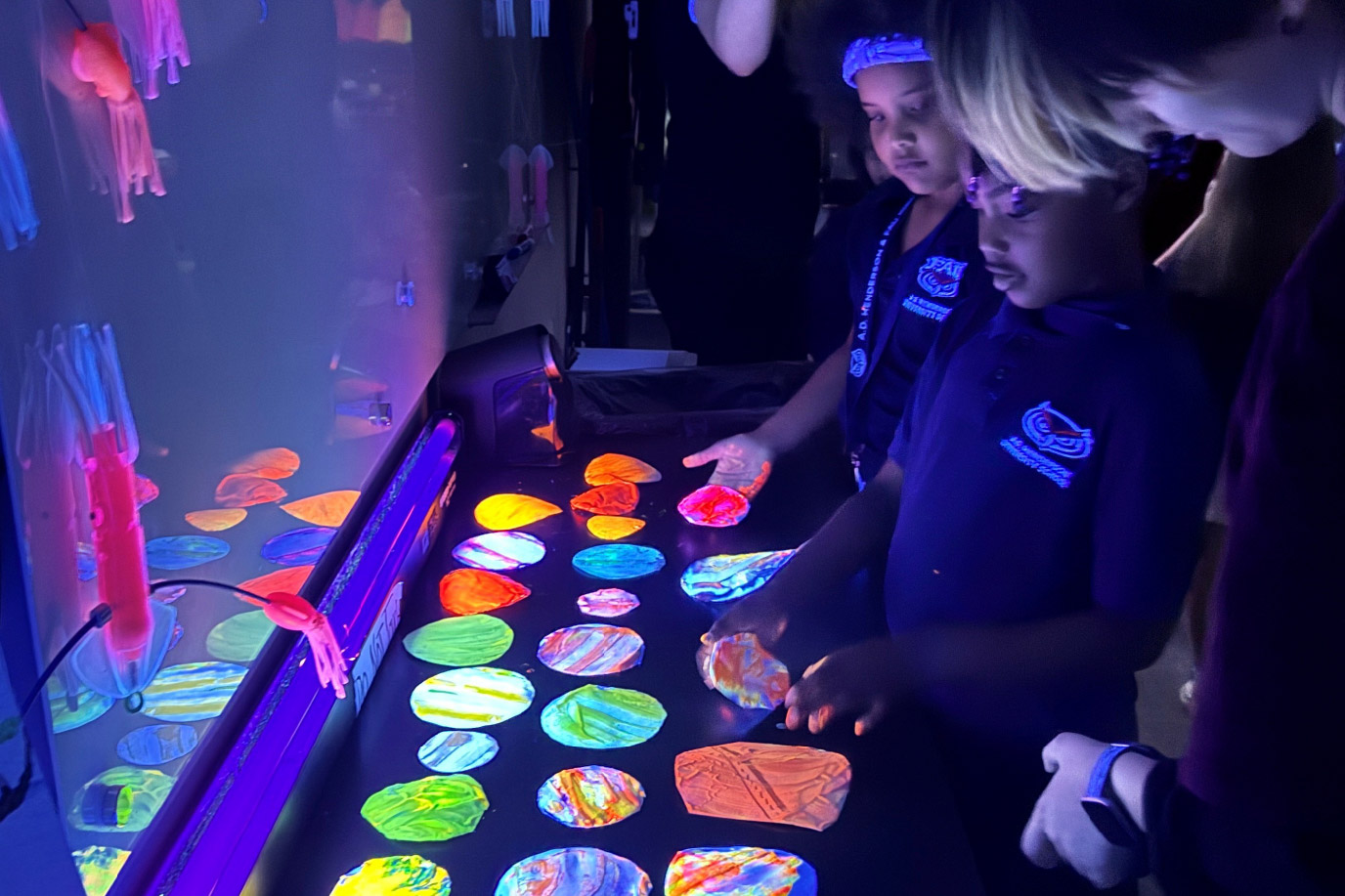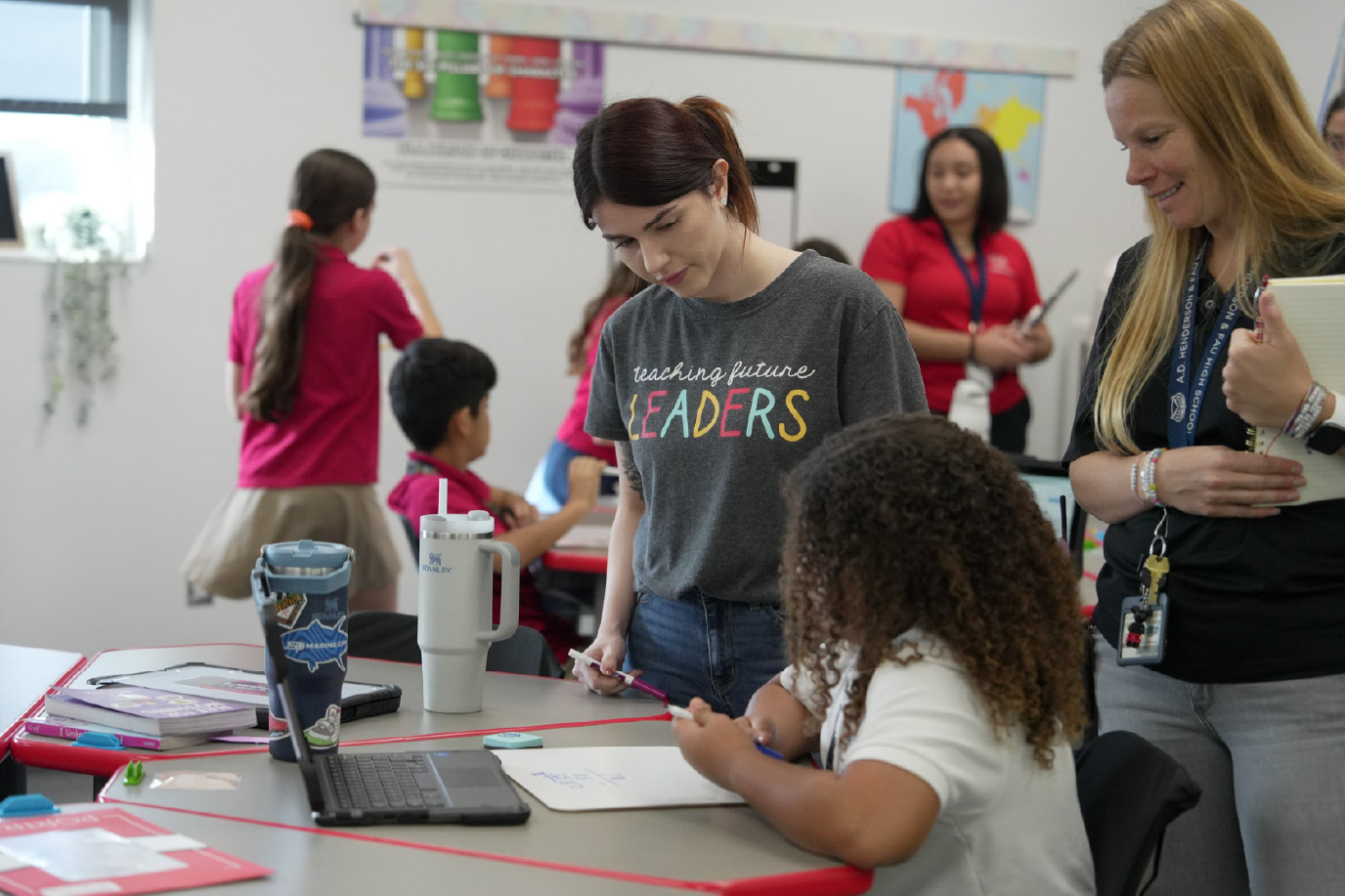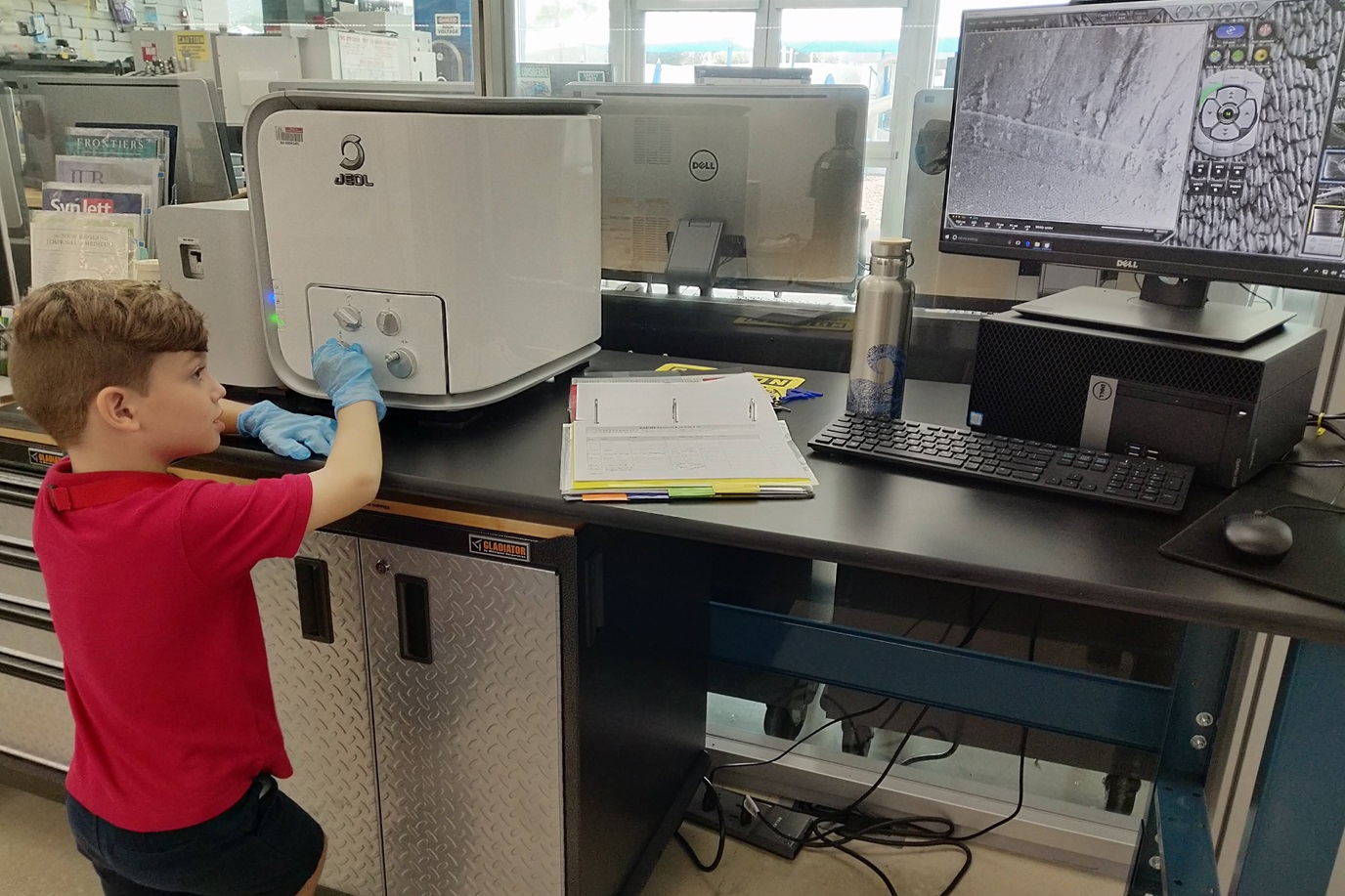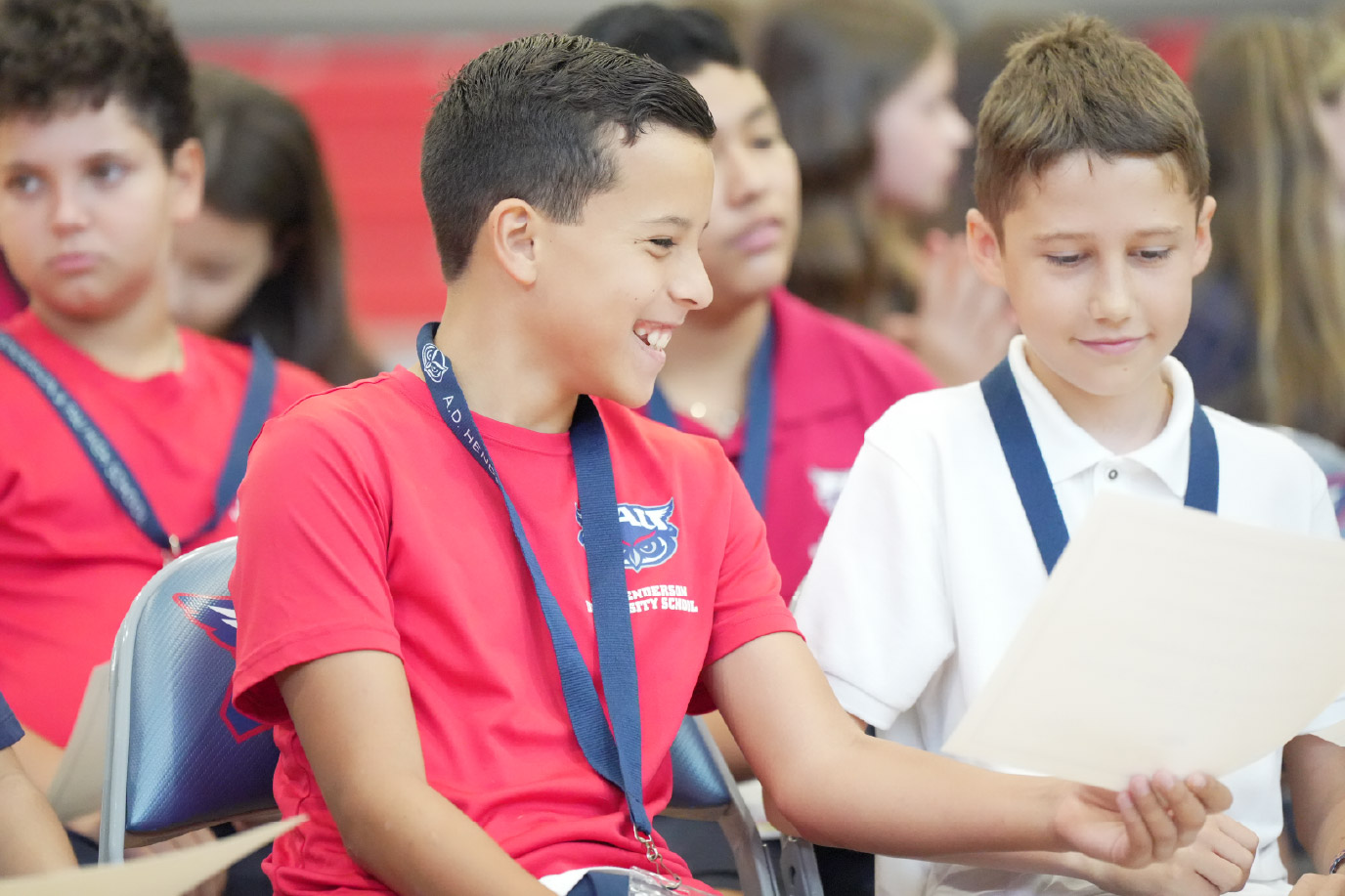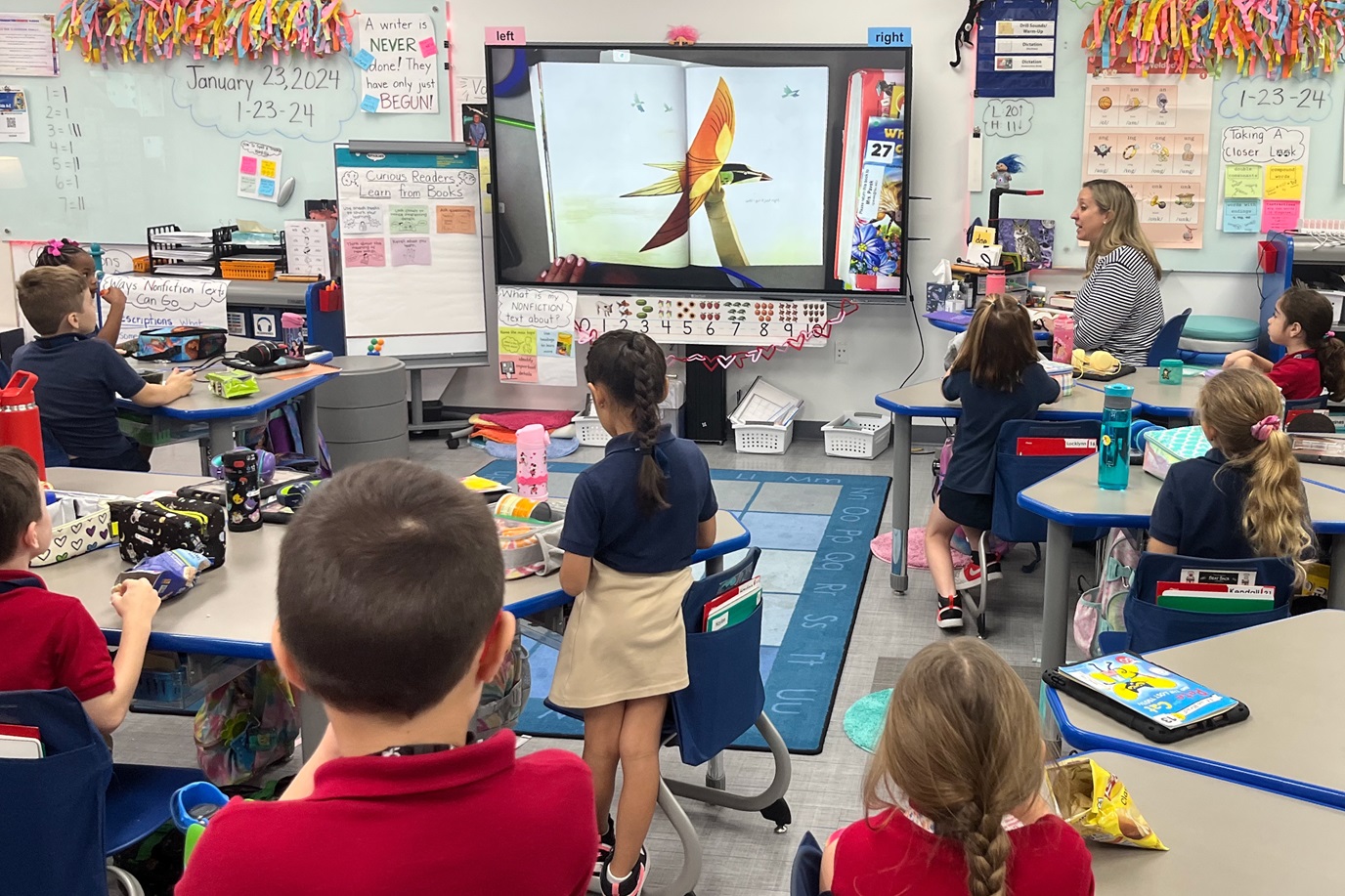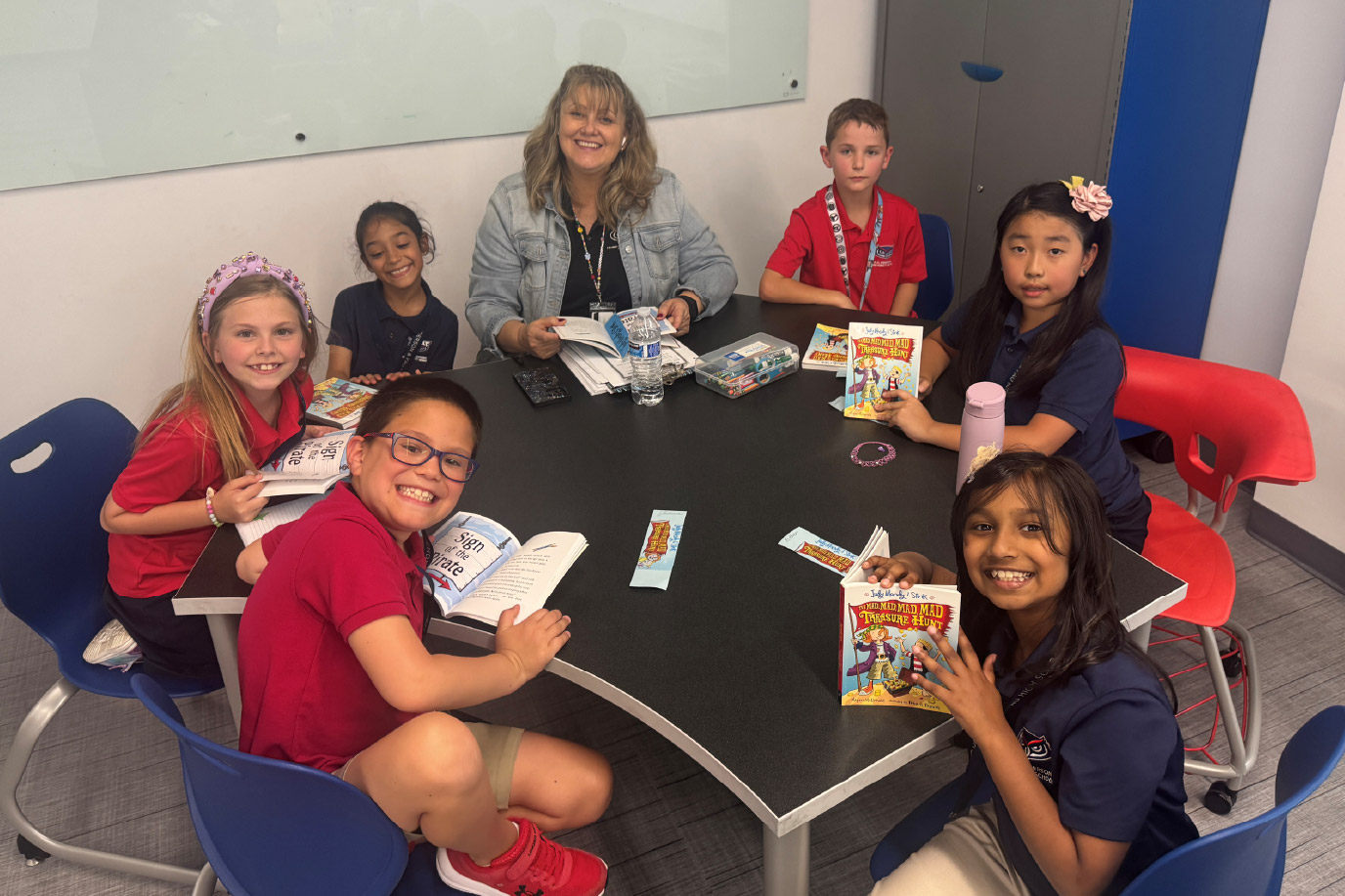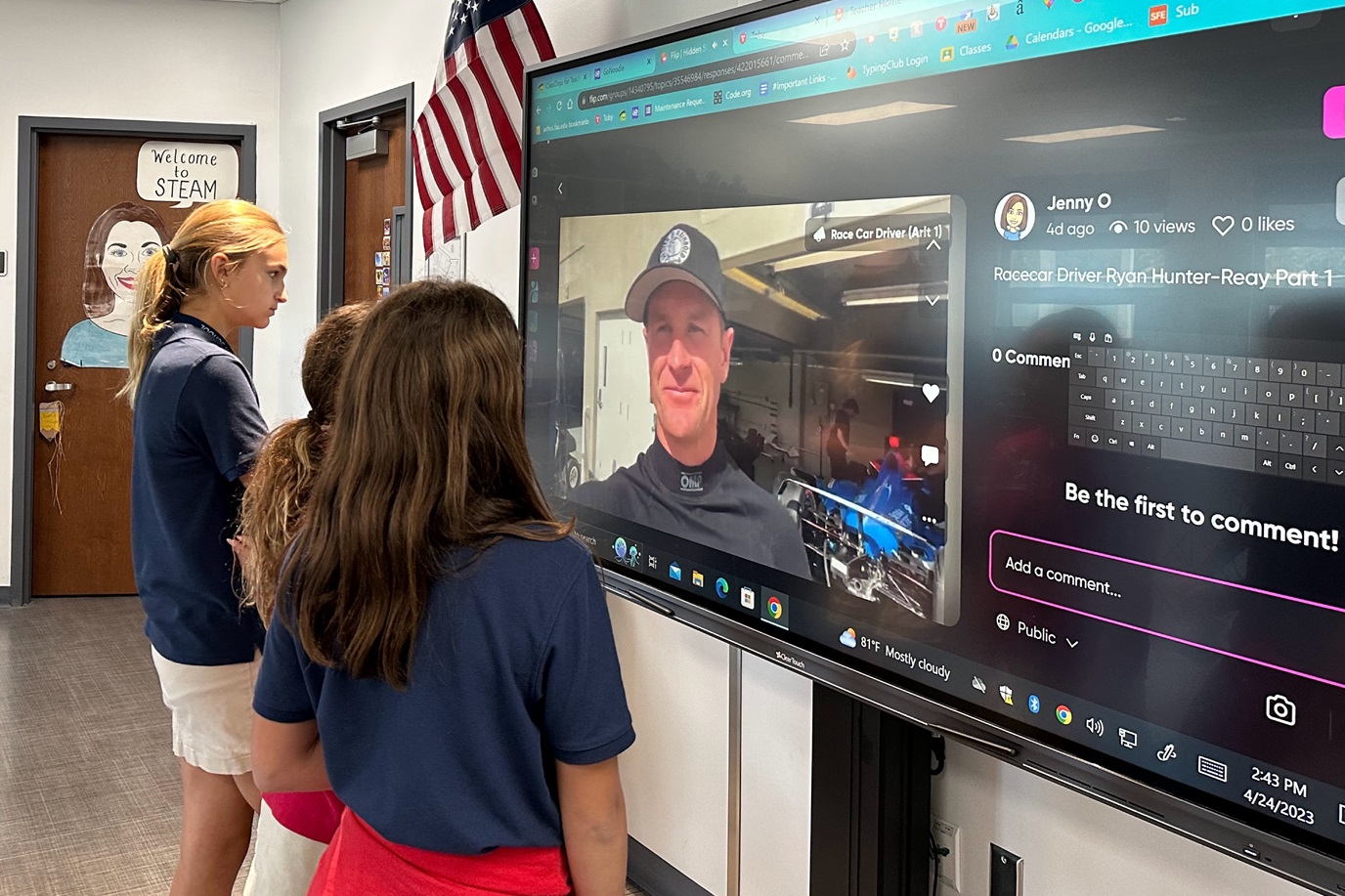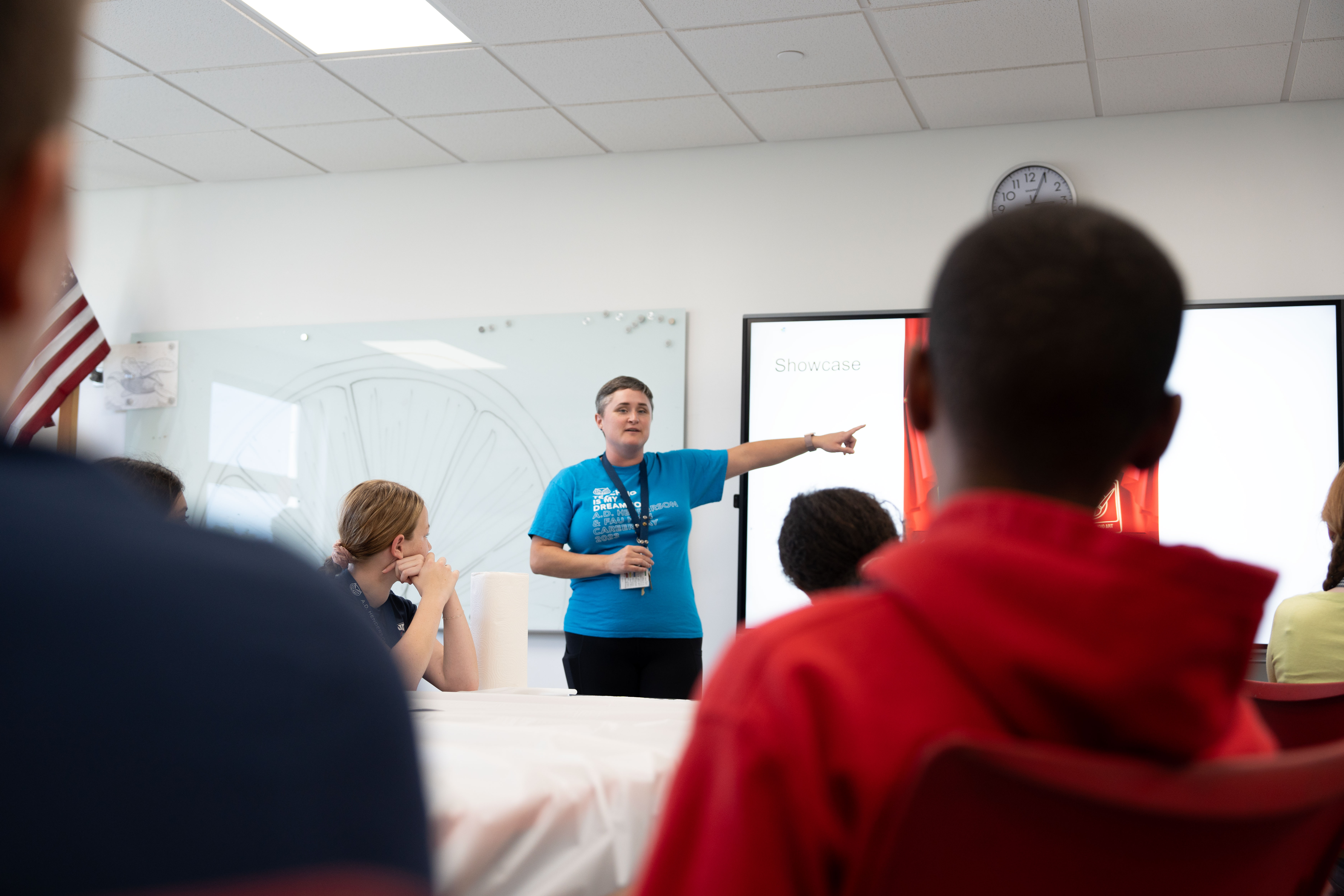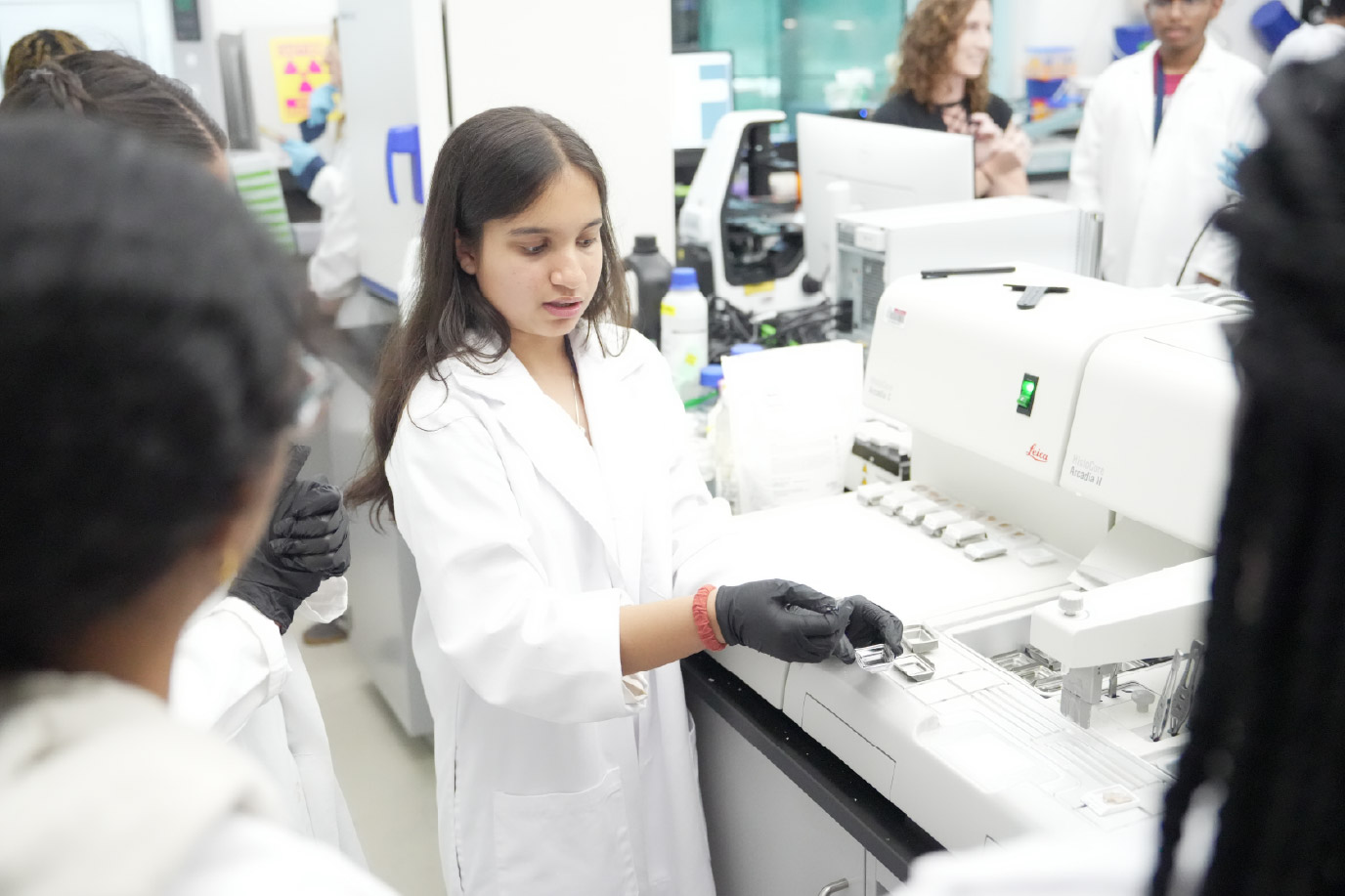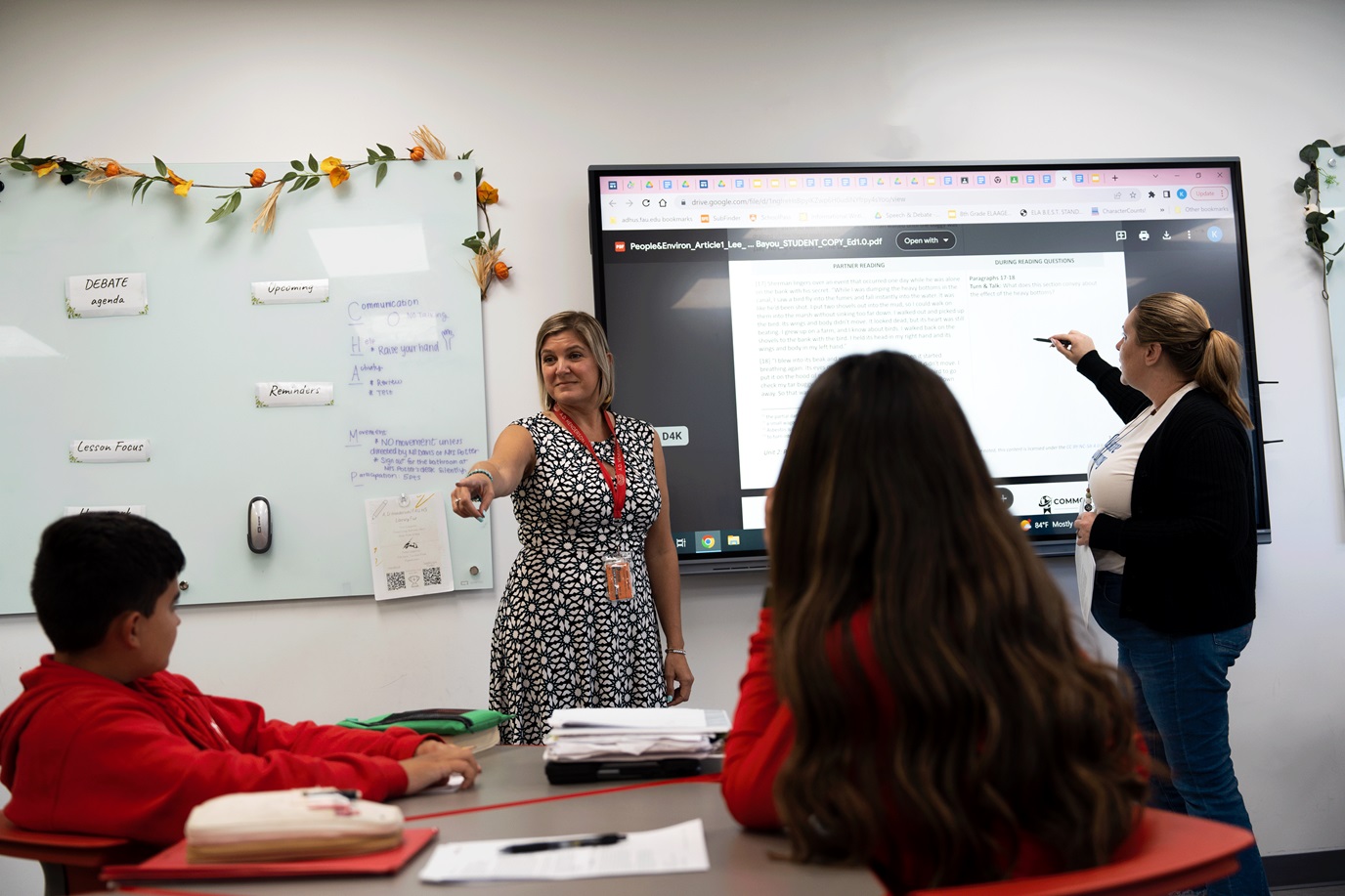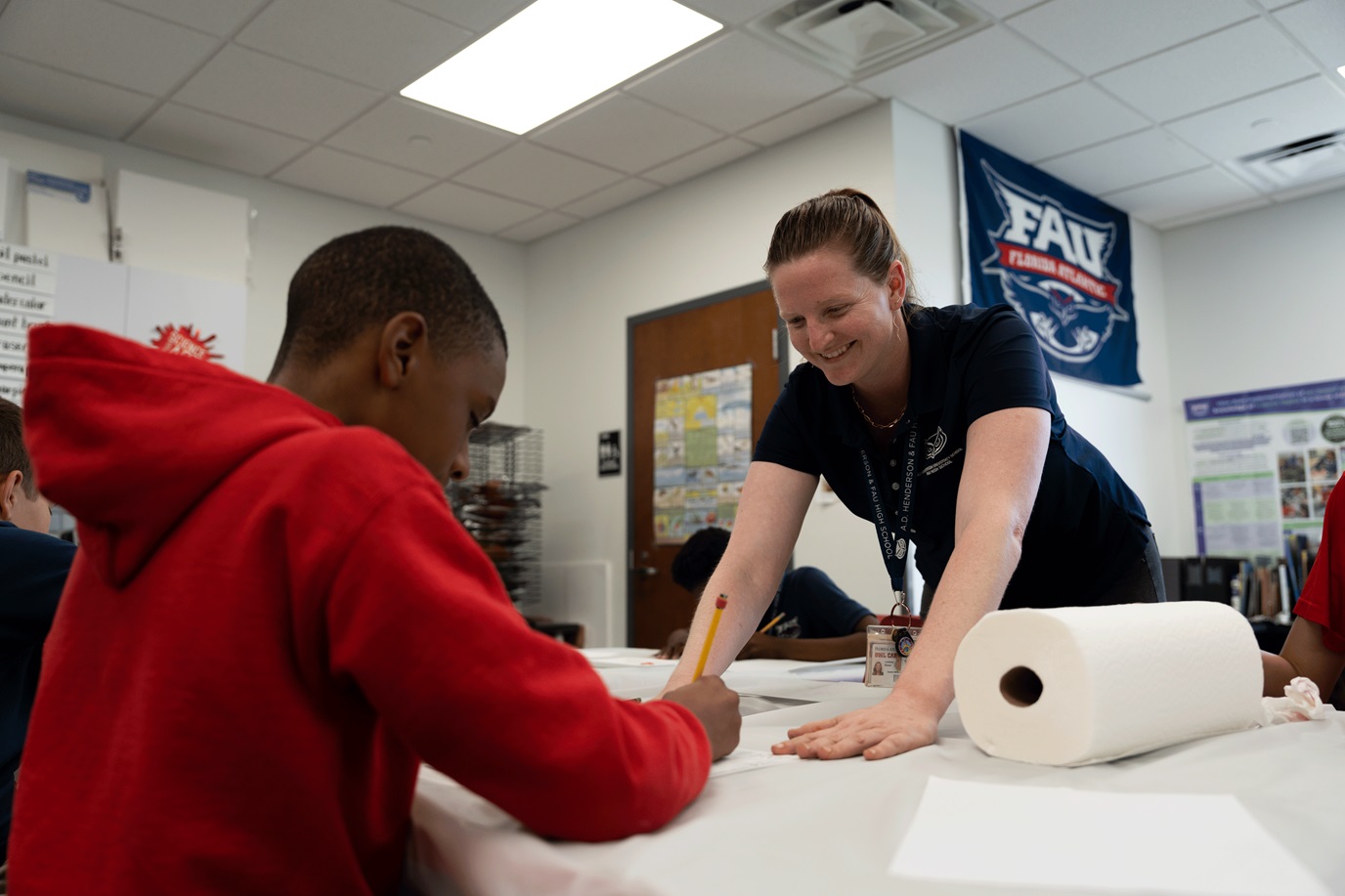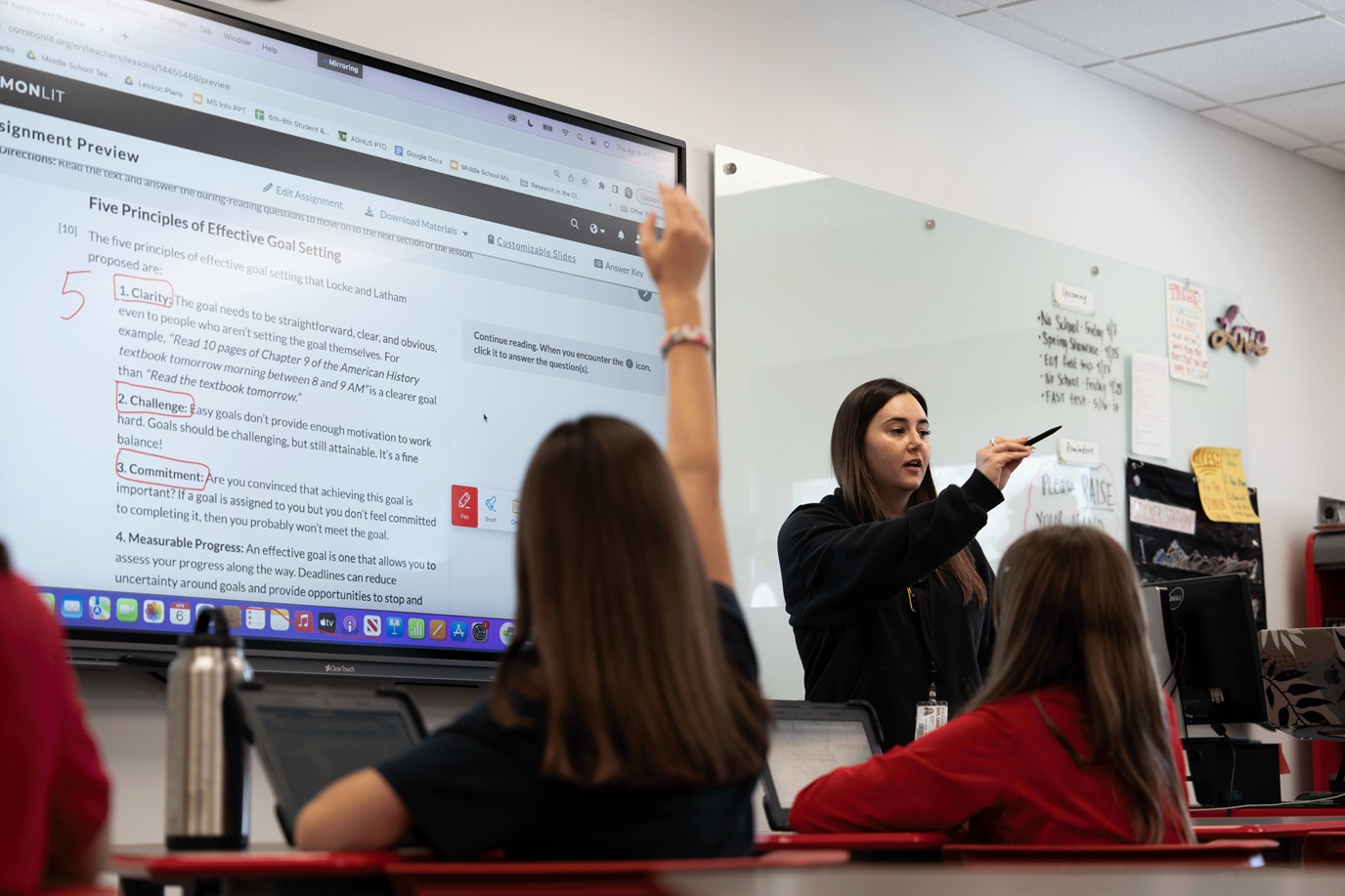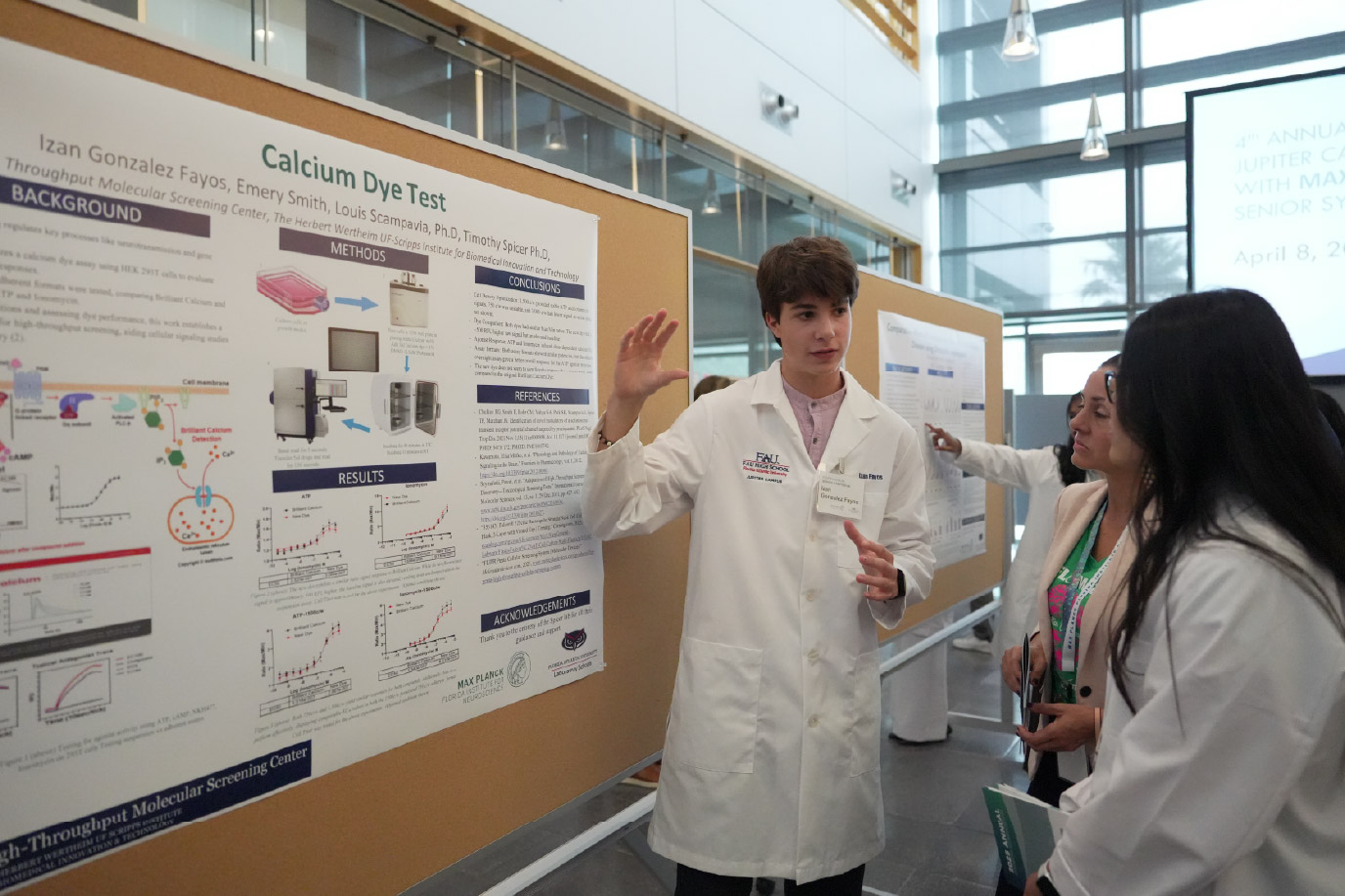FAU Lab Schools Teacher Research
Peer-supported learning is a powerful tool in literacy development, particularly in elementary grades where students are building foundational reading skills. Reading partnerships provide opportunities for students to engage collaboratively, allow for peer modeling, and shared problem-solving.
There is a positive correlation between a strong sense of community at school and academic success. When students feel well connected with their school and peers, they are more likely to be engaged in their learning, leading to improved academic performance.
This project aimed to foster a growth mindset among students; however, it quickly became evident that this focus was not addressing the most immediate barrier to student learning: student apathy.
The introduction of new programs often generates excitement among those who initiate the implementation. However, it's essential to consider all stakeholders in the process.
This project will impact our school community by helping us gain better insight into our students’ time obligations. We currently have robust data on our students’ school-sponsored activities, but we are completely missing activities they do outside of our school community.
Adolescents are faced with a wide range of stressors including academics, social pressures, extracurricular, and employment. These stressors are dealt with at home, at school, with friends, and online.
There has been a long-heated debate on grading math homework on completion versus accuracy. Proponents of completion state that homework mistakes should be encouraged
There is a gap between faculty willingness to hold online STEM laboratory courses and student demand for high-quality online instruction.
This project aims to investigate the benefits of creative expression in an after-school club called Studio Sessions. Benefits may include reduced stress and increased feelings of sense of belonging with school/classmates.
To counteract these challenges and shift towards a more proactive counseling model, the implementation of "minute meetings" – brief, individualized proactive emotional check-ins – becomes imperative.
By demonstrating the positive impact of physical activity on stress reduction, physical education is positioned as a key contributor to academic success.
Gaining a better understanding of the depth and breadth of the S.T.A.R. program by analyzing overall student involvement and engagement within S.T.A.R. Program activities are vital for program sustainability and improvement.
We noticed that not all students were acquiring these high frequency words at the same rate. Based on the research related to the science of reading, we need to change our method of teaching these words to our students.
Our research focuses on the impact of “wise-interventions” with the goal of fostering positive change in attitudes, behaviors, or outcomes of the Character Counts! Program at A.D. Henderson University School.
The present study introduces a prescriptive approach that leverages predictive analytics to forecast academic outcomes before the school year begins and remains consistent with classroom teacher observations.
By investigating the impact of guided notes on student comprehension, engagement, and the development of independent notetaking skills, this research seeks to inform instructional practices, benefiting both teachers and students.
Engaging read alouds play a crucial role in literacy development and overall cognitive and social-emotional growth. According to Anderson (1985), reading aloud to students is the single most important activity for building the knowledge required for eventual success in reading.
The overall goal of this study is to increase student motivation to read while investigating the components of book clubs that lead to greater motivation, and possibly stronger readers.
The purpose of this study is to examine the impact of focusing on “doing science” instead of “being scientists” on upper elementary students’ attitudes toward science by utilizing action-based syntax, as opposed to identity-based syntax during a career-study unit.
The purpose of the study is to determine to what extent note taking through visual or graphic with a kinesthetic integration have on students’ self-efficacy of third grade level math concepts.
We noticed a trend in our speech and debate classes when students struggled to choose articles to analyze for current event assignments. Our students lack the knowledge of how to identify bias and logical fallacies in sources.
Our research investigates the benefits of creative expression in an after-school club called Studio Sessions. Our student population is stressed due to academic and personal pressures. Students do not have school-sponsored creative outlets.
This research aims to create a cross-age scientific curricular experience program model, also known as the S.T.A.R. (Student Talent Ambassadors for Results) program, that utilizes standardized evaluation techniques to determine the impacts of peer-teaching on instructor self-efficacy and learner engagement.
Historically, the diversity of literature in secondary public school classrooms fails to reflect the diversity of the student population in 21st century American schools.
Educational communities have recognized the importance of presenting information in varying modalities to reach all types of learners. Science through Art provides an opportunity to study the impact of using creative, hands-on process art to learn about the world.
The purpose of this study is to examine the academic self-concept of middle grades students with disabilities at an academically rigorous, high - performing school and how self-advocacy instruction impacts their academic self-concept.
Teaching English Language Arts encompasses reading, writing, speech and language skills, and everything else that falls under these domains. With so many aspects to cover, teachers are always looking for innovative strategies to work smarter when it comes to student success.
Comprehensive school counseling programs need to carefully assess and tailor interventions to meet the student populations’ needs. Unfortunately, the needs of high achieving adolescents in accelerated curricula are often not prioritized in research or practice and many of the universal programs geared towards the general population lack empirical support for their effectiveness with high achieving students.
Having a deep understanding of fractions beginning in grade five is crucial for future success in mathematics, specifically algebra. Recent studies show that 42% of sixth grade students fail to understand fraction concepts.
Sixth graders may enter middle school with academic and social gaps, especially when it comes to communication and advocacy skills.
